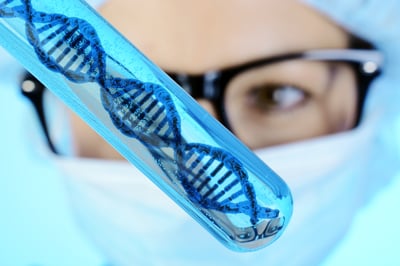FORCE's eXamining the Relevance of Articles for You (XRAY) program looks behind the headlines of cancer news to help you understand what the research means for you.
XRAY is a reliable source of hereditary cancer research-related news and information.
Learn more about the XRAY program
Categories Racial and Ethnic Differences
Relevance: High


Strength of Science: Medium-High


Research Timeline: Post Approval


Study : Surgeon attitude impacts rate of genetic testing after a breast cancer diagnosis
Relevance: High


Strength of Science: Medium-High


Research Timeline: Post Approval


Most relevant for: Young women diagnosed with breast cancer who have not yet had genetic testing
A study in JAMA Surgery this year examined the factors that impact genetic testing after a breast cancer diagnosis. This study suggests that the attitudes of attending surgeons about genetic testing have the most impact on whether patients receive testing. (10/6/18)
Read More
Relevance: High


Strength of Science: High


Research Timeline: Post Approval


Study : Disparities in research impact breast screening guidelines
Relevance: High


Strength of Science: High


Research Timeline: Post Approval


Most relevant for: Women at average risk for breast cancer
For women at average risk of breast cancer, the United States Preventive Services Task Force (USPSTF) currently recommends beginning annual breast cancer screening at age 50. However, because these guidelines are largely based on data from white women, they may not be sensitive to racial differences. A new study assesses the age distribution of breast cancer cases across race/ethnicity in the U.S. (6/21/18)
Read More
Relevance: High


Quality of Writing: High


Article : The right not to know when not knowing is dangerous
Most relevant for: People with Icelandic heritage
Healthcare providers are bound by the guiding principle of doing no harm. But how does this concept apply to their patients who have not consented to genetic testing or who do not want to know their results? In that case, is providing test results more harmful or not? Anna Clausen explores these issues in the context of breast cancer gene testing in her Global Health Now article “The Right Not to Know: When Ignorance is Bliss but Deadly.” (4/20/18)
Read More
Relevance: Medium


Research Timeline: Post Approval


Update : FDA approves at-home test kits for inherited cancer: how useful are they?
Most relevant for: People who are considering or have had direct-to-consumer testing through 23andMe
Genetic testing for health conditions (such as risk for cancer) typically requires a prescription from a doctor. Until recently, direct-to-consumer (DTC) genetic testing has focused on tests to learn your ancestry and find of unknown branches of family trees. A laboratory called 23andMe that provides direct-to-consumer genetic testing has been given FDA approval to report results for 3 mutations found in the BRCA1 and BRCA2 genes. The FDA statement provides details about this approval and warns people about the limitations of the 23andMe test. (03/19/18)
Read More
Relevance: High


Strength of Science: Medium


Study : Alcohol and breast cancer risk in African American women
Most relevant for: African American women who would like to lower their breast cancer risk
The link between alcohol intake and breast cancer is well known, but most studies have involved only White women. Recently, a large study of more than 22,000 African American (AA) women found that similar to White women, increased alcohol consumption is associated with a greater risk of breast cancer. (10/27/17)
Read More
Relevance: Medium-High


Strength of Science: Medium


Study : Beauty and the breast: hair product use and breast cancer risk
Relevance: Medium-High


Strength of Science: Medium


Most relevant for: Women who use hair products who are concerned about their risk for breast cancer
Past studies using mostly animal models showed a link between use of hair products (dyes, straighteners and relaxers) and increased risk of certain cancers. In this study, researchers looked at data on hair product use among African-American (AA) and White women to see if certain types of hair products increased breast cancer risk, and how that risk might differ between race and breast cancer hormone status. (9/27/2017)
Read More
Relevance: Medium


Strength of Science: Medium


Study : Breast cancer rates are rapidly increasing among Asian women in California
Relevance: Medium


Strength of Science: Medium


Most relevant for: Asian American women
The majority of racial groups in the United States have seen declines in breast cancer rates. However, this study provides new insights into the patterns of breast cancer rates in Asian American subgroups in California. Using 26 years of data, this research found that breast cancer is rapidly increasing among this population, contrasting to a decline in rates among non-Hispanic white women in California and nationwide. (8/15/17)
Read More
Relevance: Medium-High


Strength of Science: Medium-High


Research Timeline: Post Approval


Study : A step in the development of a new breast cancer risk assessment tool for Hispanic women
Relevance: Medium-High


Strength of Science: Medium-High


Research Timeline: Post Approval


Most relevant for: Hispanic women
Current tools used to calculate breast cancer risk make their estimations based on data from non-Hispanic white women and may not accurately predict breast cancer risk in women of other races and ethnicities. With further testing, a new risk assessment tool developed specifically for Hispanic women could more accurately predict breast cancer risk in women who do not have mutations in BRCA or other genes associated with hereditary breast cancer. (02/07/17)
Read More
Relevance: Medium


Strength of Science: Medium


Study : Breast cancer mortality among Hispanic women in the United States varies by country of origin
Most relevant for:
"Hispanic" is a broad ethnic category that includes people from numerous countries. When discussing breast cancer statistics, Mexicans, Cubans, Puerto Ricans and people whose families originated in Central and South America are typically grouped into one Hispanic category. A new study looked at whether the country of origin affected breast cancer prevalence and mortality rates in Hispanic women in the U.S. (10/25/16) Este artículo está disponible en español.
Read More
Relevance: Medium-High


Strength of Science: Medium-High


Research Timeline: Post Approval


Study : Racial disparities in BRCA testing: Why?
Relevance: Medium-High


Strength of Science: Medium-High


Research Timeline: Post Approval


Most relevant for: African American women who have been diagnosed with breast cancer
Black women receive BRCA testing less frequently than white women. Why is that? Researchers thought the reason might be that black and white women see different health care providers. However, new research suggests that disparities in physician recommendations for testing are the cause: black women with breast cancer were less likely to receive physician recommendations for BRCA testing than white women with breast cancer. There is a need to ensure equity in physician testing recommendations for black women. (7/21/16)
Read More